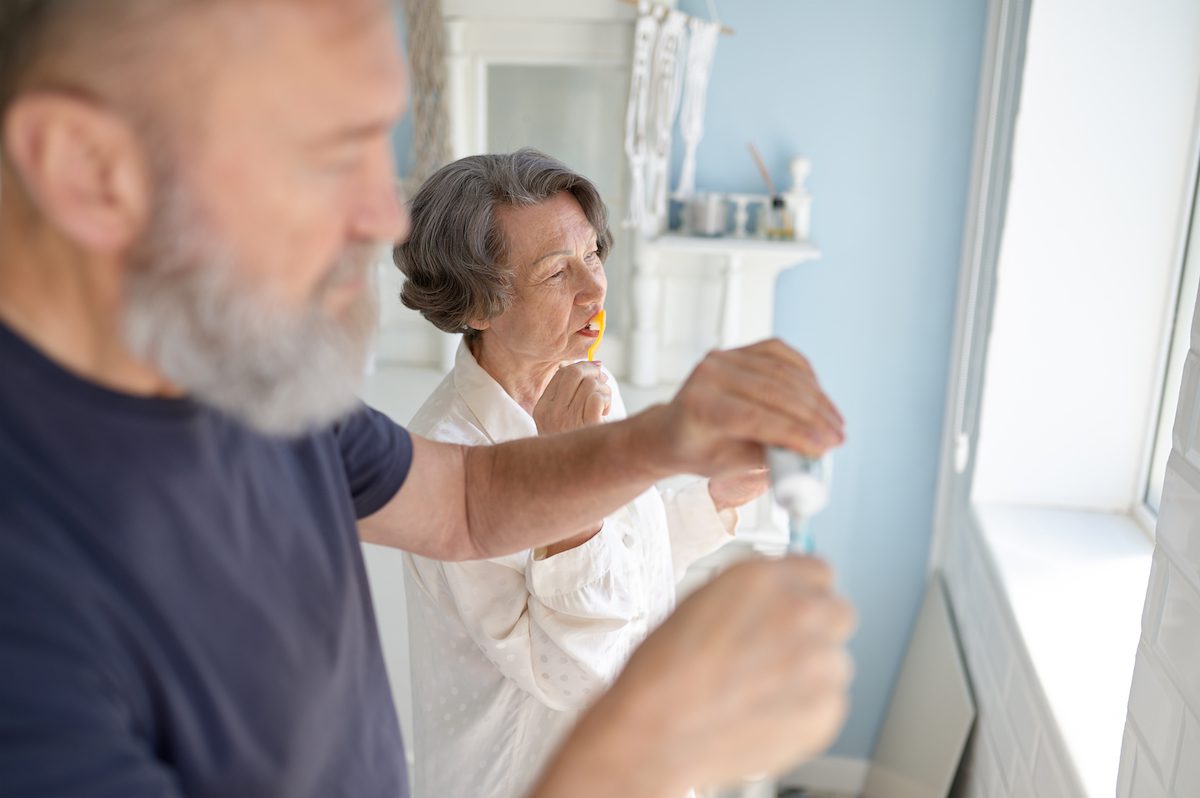As we age, our bodies go through various transformations, including our oral health. Dental hygiene becomes increasingly important for seniors, as it not only affects their overall health but also their quality of life.
In this blog post, we will explore how dental hygiene changes for seniors and the special considerations that should be taken into account.
Understanding the Aging Process
Before delving into the specifics of senior dental care, it’s crucial to understand the natural aging process and its impact on oral health. As we age, our bodies undergo several changes, and the oral cavity is no exception.
Changes in Tooth Structure
There can be several changes in tooth structure including:
Tooth Enamel Thinning
One of the most notable changes is the thinning of tooth enamel, which can make teeth more susceptible to decay.
Tooth enamel is the protective outer layer of teeth, and over time, it can wear down due to factors such as acidic foods, drinks, and general wear and tear. This thinning enamel increases the risk of cavities and tooth sensitivity in seniors.
Tooth Sensitivity
Seniors often experience increased tooth sensitivity due to receding gums, exposing the tooth’s sensitive root surfaces.
As gums naturally recede with age, they can expose areas of the tooth that are not covered by enamel, leading to heightened sensitivity to hot, cold, sweet, or acidic foods and drinks. This discomfort can impact seniors’ eating habits and overall oral hygiene.
Gum Health
There can also be several changes in gum health including:
Gum Recession
Gum recession is common in older adults, leading to increased vulnerability to gum disease. Receding gums expose the tooth roots and create pockets where bacteria can accumulate, potentially causing gum inflammation and infection.
Proper gum care becomes essential to prevent gum disease in seniors, as it can have broader health implications beyond oral health.
Dry Mouth
Many seniors suffer from dry mouth, which can result from medications and can contribute to dental issues. Dry mouth, also known as xerostomia, occurs when there is a decreased flow of saliva.
Saliva plays a critical role in neutralizing acids, washing away food particles, and maintaining the oral environment. Without adequate saliva, seniors are at a higher risk of tooth decay and gum problems.
Understanding the causes of dry mouth and managing it effectively is vital for senior dental health.
Special Considerations for Senior Dental Hygiene
Now that we’ve explored the natural aging process, let’s delve into the special considerations that should be taken into account for senior dental hygiene.
Regular Dental Check-ups
Seniors should visit their dentists more frequently, ideally every six months, to monitor oral health closely. Regular check-ups are essential for detecting and addressing dental issues early, ensuring seniors maintain healthy smiles throughout their golden years.
It’s also advisable for seniors to discuss any concerns or changes in their oral health with their dentists during these visits, as proactive communication can lead to more personalized care and prevention strategies.
Oral Hygiene Practices
Encourage seniors to use a soft-bristled toothbrush to prevent gum damage while maintaining oral hygiene. Additionally, advise them to replace their toothbrush every three to four months or sooner if the bristles become frayed.
Emphasize the importance of daily flossing to remove food particles and plaque buildup. Proper flossing not only preserves gum health but also reduces the risk of cavities in between teeth.
Suggest using alcohol-free mouthwash to combat dry mouth and kill harmful bacteria, but remind seniors that mouthwash should complement, not replace, regular brushing and flossing.
Diet and Nutrition
Promote a diet rich in calcium and vitamin D to strengthen teeth and bones. Encourage seniors to include dairy products, leafy greens, and fortified foods in their meals.
Advise seniors to limit sugary snacks and beverages to reduce the risk of cavities. Instead, recommend healthier alternatives like fresh fruits, vegetables, and nuts, which can satisfy their sweet cravings while supporting their dental health.
Denture Care
Seniors with dentures should clean them daily and remove them at night to allow gums to rest. Stress the importance of using denture cleaners or mild soap for cleaning and remind them to handle their dentures with care to avoid damage.
Furthermore, suggest periodic check-ups with a dentist to ensure dentures fit properly and make any necessary adjustments. Ill-fitting dentures can lead to discomfort and oral health issues.
Medication Awareness
Ensure seniors are aware of the side effects of their medications, particularly those that may cause dry mouth.
Encourage them to communicate any concerns about dry mouth to their healthcare providers, who can adjust medications or recommend solutions to alleviate this issue.
Seniors should also maintain a list of their medications and share it with their dentists during check-ups to facilitate a comprehensive understanding of their oral health needs.
Mobility and Dental Care
Seniors with mobility issues may require assistive devices like modified toothbrushes or dental floss holders. These tools can help maintain their oral hygiene independently or with minimal assistance.
Additionally, consider suggesting physical therapy or exercises that improve hand and arm dexterity, which can make it easier for seniors to perform daily dental care routines.
Dental Emergencies
In the event of dental emergencies, seniors should seek immediate dental care to prevent complications. It’s crucial to stress the importance of not delaying treatment in cases of severe pain, trauma, or infection.
Seniors should have contact information for their dentist readily available, and caregivers or family members should be aware of the steps to take in case of a dental emergency. Prompt action can preserve oral health and prevent further issues from arising.
Final Thoughts
In conclusion, dental hygiene for seniors demands careful attention and tailored care. Understanding the changes that occur as part of the aging process is the first step in ensuring a healthy smile in the golden years.
By following the special considerations outlined in this article, seniors can maintain good oral health, leading to an improved overall quality of life. If you have further questions regarding the oral health care or dental hygiene of your elderly loved one, please don’t hesitate to reach out to their team of healthcare providers.




